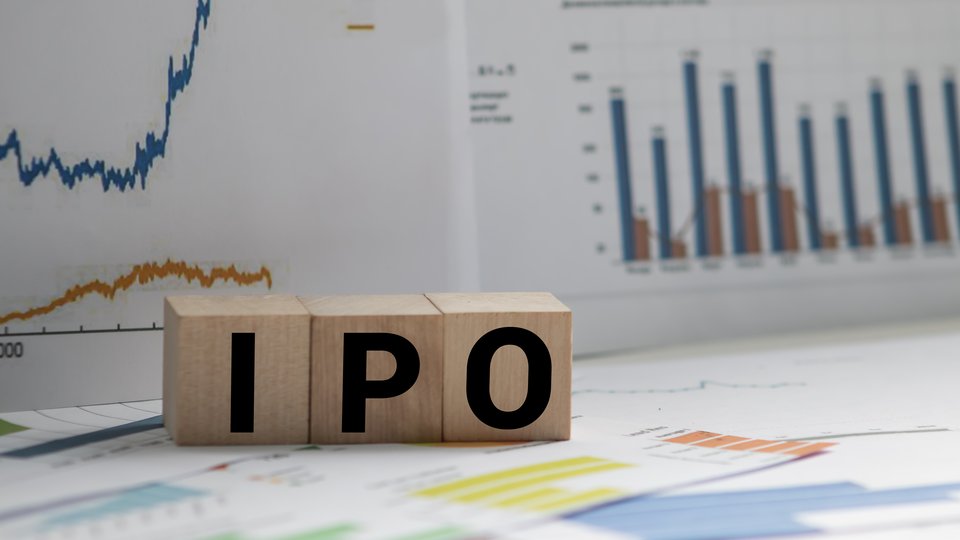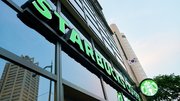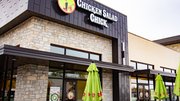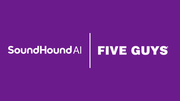Operations
Billion dollar dreams: Olo’s IPO could be valued at $3B
Restaurant software company, Olo, plans to raise as much as $306 million in an IPO. The New York-based business is pitching the offering to investors as the company announced that it made 18 million shares of Class A common stock priced between $16 and $18 per share.

March 12, 2021 by Dmytro Spilka — CEO, Solvid
Restaurant software company, Olo, plans to raise as much as $306 million in an IPO. The New York-based business is pitching the offering to investors as the company announced that it made 18 million shares of Class A common stock priced between $16 and $18 per share available for investors ahead of the IPO.
Th news of Olo's IPO also comes at a time in the technology market that is optimistic which has led to a range of IPOs being launched, including DoorDash, Airbnb and possibly Toast over the coming months.

The number of initial public offerings in 2020 has grown at a rapid pace, especially when you look at the re-emergence of SPAC IPOs and how they quickly entered the fray as the year went on.
Although the exact date of the IPO hasn't been revealed yet for Olo, industry rumors are circulating that it could be on March 16.
Putting a price on Olo
Alongside the 18 million shares that Olo is releasing at $16 to $18 per share, the company is also reserving 2.7 million shares for its underwriters. At the upper end of the range, Olo could raise as much as $386 million once it goes public, not counting the shares reserved for its bankers.
The total number of Class A and Class B shares outstanding after Olo's initial public offering would come to 142,012,926, or what TechCrunch estimates to be 144,712,926 shares — including its underwriters' option. The latter would indicate that Olo could attain a value of between $2.32 billion and $2.6 billion.
However, Olo's diluted valuation conjures an even more impressive figure. Adding in shares that are currently tied to unexercised but vested stock options bring Olo to approximately 188,085,714 shares. With the underwriters' options, the total rises to 190,785,714 shares.
Using the latter figure, and considering Olo's share value of $16 and $18 per share, the company could be worth as much as $3.05 billion to $3.43 billion on a fully diluted basis.
Accounting for future losses
2020 was a difficult year for many businesses, but it facilitated a rapid rise in sales for food-based technology companies as more residents around the world used their time in lockdown and social isolation to order takeaways and discover new restaurant delivery services.

Meal delivery services in the U.S. received huge new volumes of sales on a monthly basis, with DoorDash among the biggest movers.
Olo also underwent a significant level of growth over 2020 in the wake of the pandemic, however, the company also acknowledges that as the world adopts vaccines and transitions towards the era of the 'new normal,' the company is likely to see large losses in the near future.
In Olo's filing with the SEC, the company pointed out that it has "a history of losses and we may be unable to sustain profitability," which could impact its future financial prospects. Olo also specified that in 2018 and 2019, the business had net losses of $11.6 million and $8.3 million respectively. However, this was converted into a net income of £3.1 million.
Despite the recent upturn in financial fortune, the company stated in the filing that "we anticipate that we will continue to incur losses in the near term as we increase our operating expenses."
These losses will come primarily from spending on marketing, R&D to introduce new modules and enhance existing modules, customer service, and the strengthening and adapting of the network's infrastructure — among various other operating expenses.
The rise of the tech IPO
Despite COVID-19 causing widespread uncertainty for businesses around the world, 65 tech companies went public throughout the year - drawing on comparisons to the dotcom boom from the turn of the century.
Emboldened by the growth of the tech market in the wake of the pandemic, platforms like cloud-based company, Snowflake, and another food delivery service, DoorDash caused strong splashes when being floated publicly for the first time, but AirBnb paved the way for an impressive level of success as it launched its IPO - with stock in the company more-than doubling on its first day of trading.
Olo's initial public offering could be tempting for investors looking for a fresh opportunity to invest in tech after an impressive 2020, but the path to investing in IPOs can be tricky for the general public.
The most simple way of buying into an IPO is to go directly through the company. To check their website for opportunities to invest, or actually belong to the payroll of the company as an employee. However, in many cases, companies instead choose to offer IPOs to institutional investors as a way of selling large volumes of their shares in one fell swoop.
It's also possible for IPO participation to take place through more traditional organizations, like Fidelity and TD Ameritrade (which is owned by Charles Schwab Corporation (SCHW), although the threshold is much higher at either $100,000 or $500,000 in household assets - depending on the IPO terms itself. Alternatively, TD Ameritrade, a platform owned by Charles Schwab Corporation (SCHW), is a strong resource for buying into IPOs.
In an industry that's breathing a sigh of relieve with custom generated in 2020, Olo may have picked the perfect moment to go public. As the world has rediscovered its love for IPOs, there's no reason why the lofty ambitions of a valuation over $3 billion can't be achieved.
Launched in 2005, Olo has developed into a leading eCommerce prover for chains, leveraging online ordering, delivery integration and various other software-based services to over 64,000 restaurants from 400 brands. It also offers integration with over 100 tech platforms.
 ChatGPT
ChatGPT Grok
Grok Perplexity
Perplexity Claude
Claude












